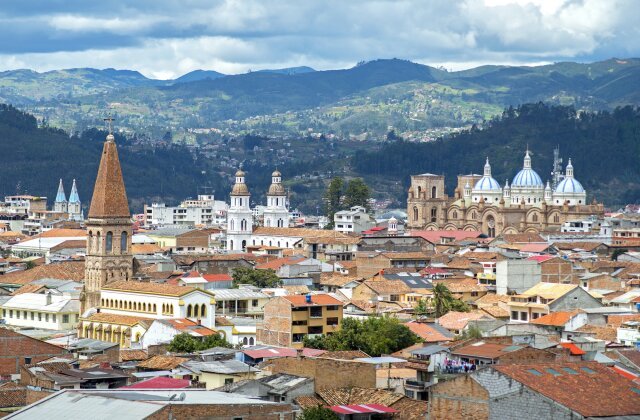In the third-largest city of Ecuador, against the backdrop of colonial buildings and the majestic Andes mountains, LaRahna Hughes found herself in the midst of a growing crisis. Early in January, Ecuador’s president declared the nation to be in the throes of an “internal armed conflict,” mobilizing the military to combat drug gangs. The escalating violence included bombings, hostage-taking of prison guards, and masked gunmen seizing control of a live TV broadcast.
As messages flooded her phone from concerned friends and relatives in the United States, questioning her safety and contemplating her departure from the country, Hughes reassured them that the violence had not reached Cuenca, her city, located nearly four hours away from the epicenter of the turmoil in Guayaquil – a port city emerging as a trafficking hub for cocaine from Peru and Colombia.
Despite the assurances, the surge in crime had not left all retirees untouched. Many adjusted to nighttime curfews and adopted additional safety measures. Some had even experienced violent incidents, such as a retiree on the Pacific coast who narrowly escaped an attempted carjacking leaving bullet holes in her vehicle.
In the face of the crisis, experts and retirees noted that there was no significant exodus. Most chose to remain in areas they still considered safe, despite the intensified crackdown on gangs. The uncertainties and tough decisions presented by overseas crises underscored the challenges for an increasing number of Americans opting to retire abroad.
Ecuador, long regarded as one of Latin America’s safest nations for U.S. retirees, had drawn many with its lower costs and promises of a higher quality of life. However, the current situation prompted caution. The U.S. State Department issued a Level 2 travel warning for Ecuador, urging increased caution, with specific regions receiving Level 3 and Level 4 warnings.
The trend of retiring abroad has been on the rise, with more Americans seeking affordable living options outside the U.S. As of December 2022, over 450,000 retired U.S. workers received Social Security payments abroad, reflecting a doubling since 1999. Factors such as rising housing and healthcare costs, inadequate retirement savings, remote work opportunities, and online communities offering information have contributed to the mainstreaming of overseas retirement.
Despite the potential benefits, events like the current crisis in Ecuador highlight the need for careful consideration. Retirees, drawn by the promise of stability and attractive policies for expats, may find themselves navigating unexpected challenges during a crisis. The choice of countries with a history of stability, participation in expat communities, and staying informed about local conditions are crucial aspects of a successful overseas retirement.
In Ecuador, the recent drug-fueled violence has shaken the sense of safety that attracted retirees in the first place. Criminal activities, including assassinations, bombings, and carjackings, have become part of daily life. Some retirees have faced alarming situations, with incidents ranging from shootings to ransom demands for a school bus.
As the government intensifies its efforts to combat armed groups, including a national state of emergency and curfews, the U.S. Embassy reported relative calm in major cities by mid-January. While some retirees have delayed their moves, many continue to renew their visas, suggesting a mixed sentiment among those currently in Ecuador.
In Cuenca, a city with a significant retiree population, residents go about their daily lives amidst a military presence. Although caution has increased, with measures such as avoiding risky areas and adopting safety precautions, most retirees express a commitment to stay. The long-term economic consequences for Ecuador remain uncertain, but U.S. retirees contribute significantly to the local economy.
As Ecuador grapples with the aftermath of the crisis, retirees like Hughes remain rooted in a country that has become their home. The hope is that the government’s efforts will bring about a reduction in violence and eventually create a manageable environment akin to the transformation experienced by Colombia. Despite the challenges, the sentiment among expats is clear – for many, Ecuador is not just a temporary residence; it’s a place they now call home.
